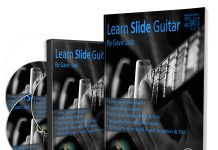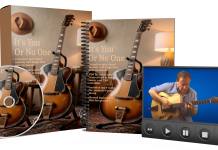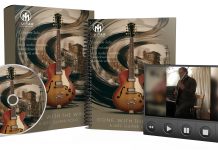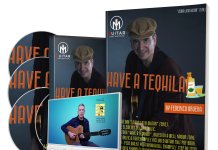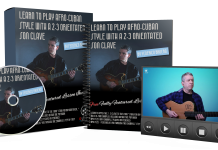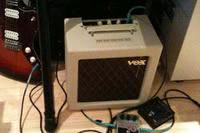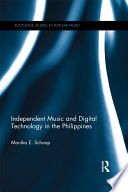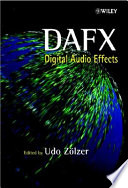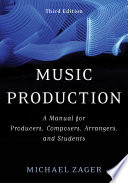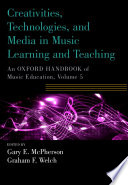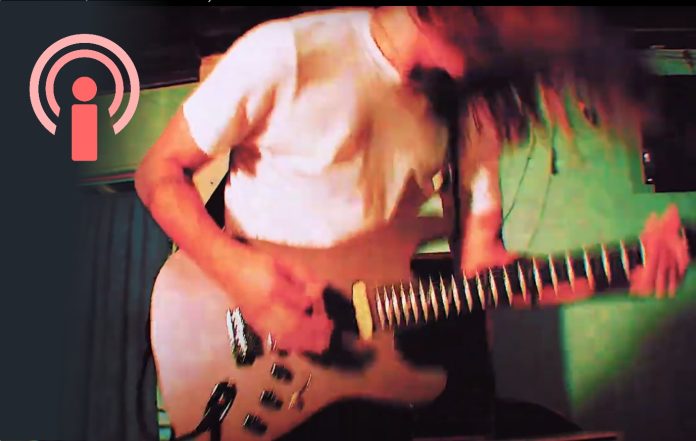Learn how to play the harmonic minor scale, a fascinating scale used in Jazz, Heavy Metal and Gipsy guitar; it will to spice up your songs and solos.
The Harmonic Minor Scale | How To Play This Scale On Guitar
Diminished Guitar Chords: Triads, Half-Diminished and Dim 7th
Diminished chords: learn how to create and play them on guitar. Diminished triads, dim7th flat five and double flat 7th
How to Make a Guitar Amp Sound Better | Tips for perfect tone
Find great tips for getting a good tone for you amp. We’ll talk about equalization, pedal effects, amp position, speakers and even cables length.
How To Transpose Chord Songs on Guitar | Interactive Tool
Learn how to transpose chords with tables, tools and capo. Often we need to transpose songs in a new key to make them easier to play and sing.
Independent Music and Digital Technology in the Philippines
In the first in-depth investigation into the independent music scene in the Philippines, Monika E. Schoop exposes and portrays the as yet unexplored restructurings of the Philippine music industries, showing that digital technologies have played an ambivalent role in these developments.
Based on extensive fieldwork online and offline, the book explores the diverse and innovative music production, distribution, promotion and financing strategies that have become constitutive of the independent music scene in twenty-first-century Manila.
Proceedings of the 9th Conference on Sound and Music Technology, Revised Selected Papers from CMST
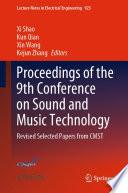
The book presents selected papers at the 9th Conference on Sound and Music Technology (CSMT) held virtually in June 2022, organized by Zhejiang University, China. CSMT is a multidisciplinary conference focusing on audio processing and understanding with bias on music and acoustic signals.
The primary aim of the conference is to promote the collaboration between art society and technical society in China. In this book, the paper included covers a wide range topic from speech, signal processing, music understanding, machine learning, and signal processing for advanced medical diagnosis and treatment applications, which demonstrates the target of CSMT merging arts and science research together.
Its content caters to scholars, researchers, engineers, artists, and education practitioners not only from academia but also industry, who are interested in audio/acoustics analysis signal processing, music, sound, and artificial intelligence (AI).
DAFX – Digital Audio Effects
* Digital Audio Effects (DAFX) covers the use of digital signal processing and its applications to sounds * Discusses digital audio effects from both an introductory level, for musicians, and an advanced level, for signal processing engineers * Explains what can be done in the digital processing of sounds in the form of computer algorithms and sound examples resulting from these transformations * Brings together essential DSP algorithms for sound processing, providing an excellent introduction to the topic
Music Production, A Manual for Producers, Composers, Arrangers, and Students
In an age when the recording industry is undergoing its most radical change in over half a century, the guidance of a skilled music producer is quickly becoming indispensable for producing a great recording.
Music Production: A Manual for Producers, Composers, Arrangers, and Students, Third Edition serves as a comprehensive road map for navigating the continuous transformations in the music industry and music production technologies.
From dissecting compositions to understanding studio technologies, from coaching vocalists and instrumentalists to arranging and orchestration, from musicianship to marketing, advertising, and promotion, Michael Zager takes us on a tour of the world of music production and the recording industry, helping students and professionals keep pace with this rapidly changing profession.
This third edition features: New interviews with eminent industry professionals Updated information on current trends in producing popular music and the impacts of the Music Modernization Act Additional material on video game music End-of-chapter assignments for course usage An instructor’s manual is available.
Please email textbooks@rowman.com.
Creativities, Technologies, and Media in Music Learning and Teaching
Creativities, Media, and Technology in Music Learning and Teaching reviews the diverse types of creativity found within music education practice across the globe. The volume explores the transformative changes within the discipline resulting from new technologies and rapid advances in media, and the implications these have for the future.
Episode 61 – Liam Thomas: Creating Music & Spicing Up A Music Career
One of the aims of the GMI – Guitar & Music Institute’s podcast is to bring new people to a wider audience who are creating a life in the world of music. There are many ways that people can be involved in music, but in this episode, Ged Brockie interviews American guitarist and composer Liam Thomas who outlines the many opportunities available to people making their way in muisc.
Liam has his own band, has created many compositions but along with that, Liam also works in the world of music publishing. To be exact, Liam heads up the J.W. Pepper “My Score” team ensuring that composers from America and around the world are able to create income from uploading their music to the J.W. Pepper My Score platform.
In this wide ranging interview, Liam discusses his early years, his motivations for playing and composing music as well as the important work he carries out in one of the world biggest publishers.
Podcast Ep 61 – Table Of Contents
0.00 – 2.30 Introduction
2.30 Studies and education.
3.50 Guitar influences.
6.03 Liam’s family background.
10.18 Deciding to make music a career choice.
12.35 Don’t be afraid to also work in other sectors.
14.00 Performance opportunities in America.
15.50 How do composers can make an income?
16.46 Is the emergence of AI making it more difficult for musicians?
23.03 Liam and his role within J.W. Pepper publishing.
24.55 How J.W. Pepper is changing with the rise of the digital revolution.
27.27 Discussing the Hal Leonard buy out.
28.15 Defining the “My Score” opportunities.
32.46 Liam discusses the formation and history of J.W. Pepper.
33.17 The extended reach of the company.
34.12 Liam’s plans for the future and final thoughts.
All music played in this podcast comes with the knowledge and prior permission Liam Thomas.
For those wishing to learn more about Liam, his music, band and his work with J.W. Pepper, please check these website links.
https://www.jwpepper.com/myscore/liamthomasmusic My “My Score” profile.
https://www.jwpepper.com/myscore General “My Score” website landing page, for anyone interested in signing up after listening to the show.
https://flow.page/obsl.pa The flow page for Liam’s band, Obsolescence.
https://distrokid.com/hyperfollow/liamthomas2/fire–ice-feat-nathan-hansen Some of Liam’s solo music from graduate school.
Podcast: Play in new window | Download () | Embed
Subscribe: Apple Podcasts | Blubrry | TuneIn | RSS | More






